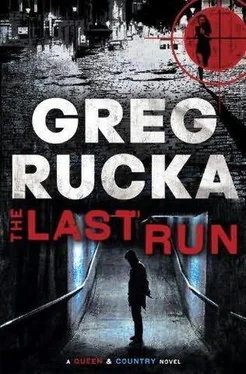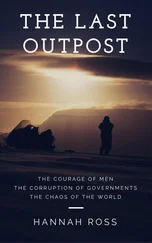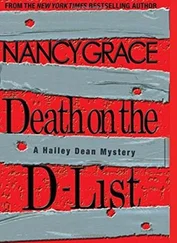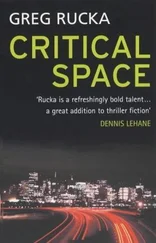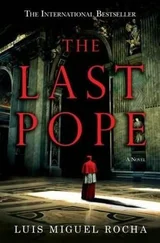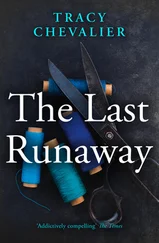Greg Rucka - The last run
Здесь есть возможность читать онлайн «Greg Rucka - The last run» весь текст электронной книги совершенно бесплатно (целиком полную версию без сокращений). В некоторых случаях можно слушать аудио, скачать через торрент в формате fb2 и присутствует краткое содержание. Жанр: Шпионский детектив, на английском языке. Описание произведения, (предисловие) а так же отзывы посетителей доступны на портале библиотеки ЛибКат.
- Название:The last run
- Автор:
- Жанр:
- Год:неизвестен
- ISBN:нет данных
- Рейтинг книги:4 / 5. Голосов: 1
-
Избранное:Добавить в избранное
- Отзывы:
-
Ваша оценка:
- 80
- 1
- 2
- 3
- 4
- 5
The last run: краткое содержание, описание и аннотация
Предлагаем к чтению аннотацию, описание, краткое содержание или предисловие (зависит от того, что написал сам автор книги «The last run»). Если вы не нашли необходимую информацию о книге — напишите в комментариях, мы постараемся отыскать её.
The last run — читать онлайн бесплатно полную книгу (весь текст) целиком
Ниже представлен текст книги, разбитый по страницам. Система сохранения места последней прочитанной страницы, позволяет с удобством читать онлайн бесплатно книгу «The last run», без необходимости каждый раз заново искать на чём Вы остановились. Поставьте закладку, и сможете в любой момент перейти на страницу, на которой закончили чтение.
Интервал:
Закладка:
Then, at the beginning of November, ten members of the embassy staff in Tehran had been arrested, all of them accused of espionage, and after almost two weeks of diplomatic wrangling between Her Majesty's Government and the Islamic Republic of Iran, all ten had been released, declared persona non grata, and sent packing back to England. It wasn't the first time such a thing had happened, and it certainly wouldn't be the last, but what had made this particular instance exceptional was that, of the ten, two actually were working for SIS. In the mad scramble to fill the post, Lee Barnett had been pulled from Istanbul and named the new Tehran Number One, but nowhere in the field had D-Ops been able to find an able Number Two.
Which was why, only one week before completing the School, Caleb Lewis had been called out of class by James Chester and directed to report to Paul Crocker in London for immediate briefing by D-Ops. Chester had added, ominously, that Lewis might want to pack up his belongings before he left. Forty-seven hours later, he was getting off a plane in Tehran, his heart trying to climb its way out of his mouth, and his head still reeling with the nearly absurd amount of operational data the Ops Room staff had pumped into it.
Ever since that moment, Caleb Lewis had been desperately pretending he was a spy, and was just as desperately certain he wasn't any damn good at it. The Ops Room had done their best by him, and, in fact, Lewis was doing a far better job of things than he imagined. The briefing, while hasty, had been thorough, comprehensive, overseen not only by D-Ops, but by Terry Ricks, the previous Tehran Number Two. It was Ricks who had done most of the talking.
"First priority on hitting the ground, Caleb, is to figure out what that bastard Shirazi's done to us since we've been on holiday," Ricks said. "Those VEVAK bastards move quick, damn quick, and they'll be looking to make you as one of ours as soon as you land."
"Understood," Caleb said, nodding, head already starting to swim in confusion.
"Play the rulebook, understand? Take your time, identify the opposition, don't do anything-not a bloody goddamn thing-until you're certain you know when you're being followed and when you're not."
"Yes." Caleb spoke with such emphasis that D-Ops, sitting alone along one side of the briefing table, shot him a glare, and Lewis didn't need telepathy to read the man's thoughts. Crocker was nervous about him, and with good reason. Lewis was being sent into a hostile theatre, green as a new shoot. Everyone present for the briefing-hell, everyone in the Ops Room, if not in Vauxhall Cross itself-knew the importance of Tehran.
Ever since the Revolution, Iran had been, as they said in the old days, a tough nut to crack. But following the last election and the suppression of the Green Revolution that followed in its wake, SIS had seen an opportunity and seized it. It had taken Ricks the better part of a year, but somehow he'd cobbled together the beginnings of a new network, consisting mostly of students and counterrevolutionaries, with a few, precious members of the clergy and low-level government officials. The nascent cell was of paramount importance to SIS, and one needn't be an expert in Farsi to understand why; since the Revolution, reliable human intelligence out of Iran had been near-impossible to obtain. The Americans were widely known to be both deaf and blind in the country, and Britain, even after thirty years of effort, had met with nothing but repeated failure in the face of VEVAK's aggressive counterintelligence program. Israel's operations, while perhaps more successful, had always been jealously guarded and its fruits rarely shared, now even more so with the possibility of a nuclear Iran.
There was no margin for error. If there was a failure in Iran, it would be laid first at Caleb's feet, then at Barnett's, and of the two of them, Barnett, with his years of service to the Firm, had political cover. If Caleb screwed this, his would go down in the record books as one of the shortest careers in SIS history.
"Used cars for code names," Ricks said. "Code words and phrases for all of them, using Farsi only, to avoid suspicion. The lexicon's here, you'll need to memorize it. Newest one recruited, code name Mini, works for one of the mujtahids appointed to the Guardian Council. Ideological asset, has refused funds. Very, very skittish, Lewis, and with good reason. His dead drop is in the Park-e Shahr, beneath the eastern footbridge, north side. Checks Wednesday and Saturday. Eleventh brick up, sixth in as you face it on the left. The masonry looks solid, but the brick is loose. Drop-loaded sign is an empty pack of cigarettes on the ground at the foot of the trashcan, to your right as you enter the park from Fayyaz-bakkah Street, facing south. Your drop-cleared is a yellow chalk mark on the front of the south gatepost, at the east entrance to the park. Repeat it back."
Caleb repeated it back without error. He thought Crocker looked surprised he'd managed it.
"Good," Ricks said. "Next one, code name is Phantom, she's a student at Tehran University. Ideological, but is taking payment…" The first Saturday in December, and Caleb woke cold and immediately scared, eyes coming open to find himself staring into his pillow. He sat himself up with a start, certain he'd overslept, checked the clock and saw he hadn't, and fought off the near-overpowering urge to collapse back beneath the warmth of his blankets. Tehran had turned surprisingly cold in the last three weeks, never rising above ten degrees Celsius. Rain had started falling the night before. Sitting on the side of his bed, he could hear it spattering against the windows still.
Caleb roused himself, showered and dressed, took his backpack from its peg, and then, with a moment's hesitation to gather himself and marshal his courage, stepped out of his apartment. He made his way down the two flights onto Mellat Street and into the rain. A car sped past him as he emerged, an old Fiat, and he avoided the spray it kicked up, only to be rewarded twenty yards to the south with a soaking from a speeding Khodro as he crossed Amir Kabir. He shook himself off, continuing towards the Tehran Bazaar, most of the shops not yet open. It wasn't yet six in the morning. He ducked into the first open cafe he found for a quick cup of coffee, exchanging pleasantries with the owner, and used the opportunity to again try and spot anyone who might be following him.
That he didn't see any surveillance did nothing to ease his fears. In its own way, it made things worse. There were three drops for him to check, Mini, Cayman, and Quattro, and Caleb took them in reverse order this morning, in an effort to continually vary his routine. No signs set for Quattro or Cayman, and he was beginning to think that maybe he might be home and warm and dry before eight, when, at the entrance to the Park-e Shahr, at the foot of the trashcan, he saw a crushed pack of 57s. The cigarettes were manufactured by the Iranian Tobacco Company, named 57 after the year 1357 in the Iranian calendar, 1979 in the Gregorian, the year of the Revolution.
Without stopping, Caleb continued into the park. The rain began pelting him with thicker drops, and he struggled with the sudden desire to look back over his shoulder, to check, once again, for anyone who might be following him. Thus far he'd seen no one who raised undue suspicion, had seen nothing out of the ordinary, but that gave him no confidence. His contact with Mini since arriving in-country had been limited, only one message two weeks earlier, marginal value about movement on the Guardian Council and a statement that he had to be careful, that he was afraid he was under suspicion. Given everything Ricks had told him about Mini, Caleb had expected a longer silence.
He trudged his way deeper into the park, along the broad central main path, stepping over piles of scattered, sodden leaves. A bicyclist swooped past him, continued on, speeding towards the central fountain. Caleb turned west, onto a thinner trail, overhung with branches, the sound of the rainfall louder on their leaves. The near-constant noise of Tehran's automobile traffic had faded, and now he could hear his own footsteps. There was a bench on his right, ahead of him, and he stopped at it, propping up his left foot and bending to fix the laces on his trainers. He straightened, wiped water out of his hair, and still he saw nobody who might be following him. He turned south, switching paths, then east again, and twice more he stopped to admire the trees, or to look north, as if trying to spot the Alborz Mountains behind the rain.
Читать дальшеИнтервал:
Закладка:
Похожие книги на «The last run»
Представляем Вашему вниманию похожие книги на «The last run» списком для выбора. Мы отобрали схожую по названию и смыслу литературу в надежде предоставить читателям больше вариантов отыскать новые, интересные, ещё непрочитанные произведения.
Обсуждение, отзывы о книге «The last run» и просто собственные мнения читателей. Оставьте ваши комментарии, напишите, что Вы думаете о произведении, его смысле или главных героях. Укажите что конкретно понравилось, а что нет, и почему Вы так считаете.
